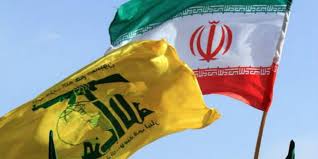
The Biden administration should be worried about the Polisario’s ties with Iran-backed Hezbollah militia as the ISIS terrorist group is rebuilding in Africa after losing its Middle Eastern caliphate.
The alarm has been sounded by the U.S. Foundation for Defense of Democracies (FDD) in an Op-Ed penned by Emanuele Ottolenghi, a senior fellow at this Washington-based think-tank, and published by The National Interest monthly magazine.
The author describes Morocco as a strong U.S. ally and a moderate voice within the Arab League, saying the Kingdom’s recent normalization with Israel is promising and calling on the Biden administration to support it as part of a broader effort to consolidate and expand the Abraham Accords.
Washington has much to lose from a resurgent conflict in Western Sahara, and it should not let Iran dispatch its proxies, much like it did in Syria a decade ago, to make matters worse, warns the FDD analyst, underlining Morocco’s firm stand against Iran’s attempt to spread its brand of Shiism among its predominantly Sunni population.
In 2018, Morocco accused Iran of dispatching senior Hezbollah operatives and supplying weapons and training to the Algeria-backed separatist group of Polisario, recalls Mr. Ottolenghi.
Iran hated Morocco for nabbing several wanted Hezbollah operatives including Hezbollah financier Kassem Tajideen who was extradited by the Kingdom to the United States, explains the FDD expert, noting that the Polisario ended afterwards a three-decade-long truce with Morocco, a breach which could ignite an already unstable region.
For Morocco, a historic bulwark of Islamic moderation and pro-Western policy in an otherwise restless region often convulsed by radicalism, this does not bode well, especially when taken together with accusations of Hezbollah’s support for Polisario, says Mr. Ottolenghi.
Furthermore, Iran’s official position on the Western Sahara dispute coincides with Algeria’s. Algeria has reciprocated this support numerous times – most recently in May 2020, when it allowed Iranian aircraft to refuel in Algiers on its way to Venezuela. And Hezbollah-Polisario contacts are public knowledge: A key Polisario leader, Nana Rabbat al-Rasheed, led a delegation to Beirut in 2017, where she met Hezbollah’s MP Ali Fayad (and posted an excited “Long live the resistance!” comment on her Facebook page) and other Hezbollah representatives.
“There are other reasons to be concerned. Western Sahara as well as Morocco’s coasts have increasingly become a transit point for cocaine shipments from Latin America to Europe—a business assiduously facilitated by Hezbollah financiers”, adds the analyst.
“The Hezbollah-Polisario link is concerning not only because it reflects a common Iranian strategy to gain influence by beefing up proxies against its adversaries, but because it could be an incubator for mutually beneficial illicit activities that would add to regional instability”, warns the FDD analyst.
He urged the Biden administration to support its strategic allies such as Morocco and to counter Iranian destabilizing plots which threaten U.S. national interests.
